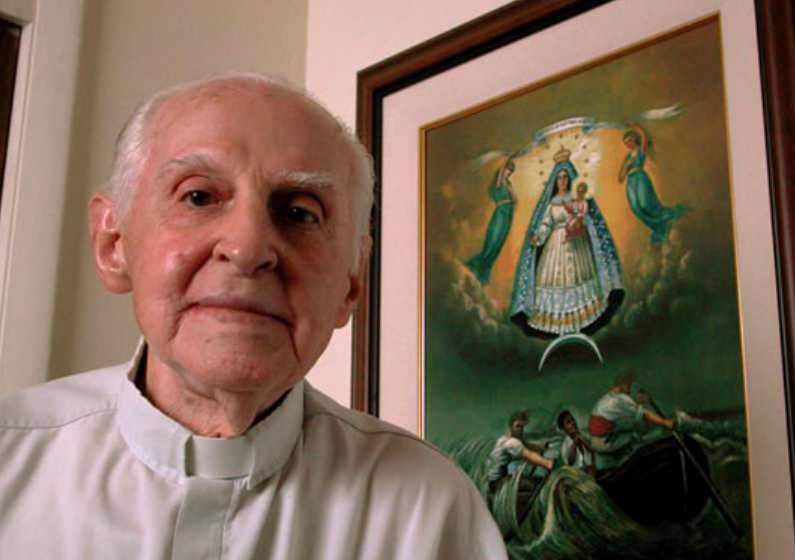4.1.2.4.1 “Poems”, published in 1940 by Angel Gaztelu (1914 – 2003)

The notebook included by Angel Gaztelu, titled solely “Poems” in “Espuela de Plata” (Silver Essay), 1940, already demonstrates the author’s fruitful religiosity, his delight in the landscape and especially in the night, an atmosphere conducive to the poet’s lyricism, sometimes confined to traditional stanza structures, especially the sonnet; and other times liberated in verses that flow like rivers.
“Prayer and Meditation of the Night” is a poem of profound lyricism and intense emotion, in which the poet sings his praises to the Creator, his words carrying the depth of a dictation from his grateful blood. His exegetes have often alluded to the fact that his poetry is very similar to the sensibilities of Fray Luis de León, and this is one of the poems that most demonstrates this.
In this case, the purely aesthetic is not an objective per se; rather than producing beauty, the bard seeks to capture the beauty he naturally encounters in his journey through the world, and especially in the divine, which he approaches with all the strength of his faith; for he knows that words, no matter how many he uses and how many successful combinations he finds, cannot surpass the beauty of the pulsating creation.
This fragment illustrates the emotion that inspires the poem and also leads to the connection of the collection of poems:
“I would like to remain silent… but it is love that raises its song in me
very high,
her song, burning and perfect and round like a pomegranate.
I would like to remain silent… but his irresistible ardor is what moves my voice
This night when I am high as on a mountain of delights,
so close, oh, to heaven that I could tear it away with my hands
to the tree of the night so flowery, the emotion so clear of its fruits.”
For its part, “Nocturno marino” speaks to us of the delicate sadness that fades in the soul and the serenity that is established before the immense sea. The symbol of the sea, which calms emotions, is enlivened in verses of long assonances. The all-loving god is evoked here as a final consolation, for a subject who becomes the voice of all, a universalist perspective that ignores historical circumstances and refers only to the emotional and beautiful that are a common heritage.
The sonnets included here by Angel Gaztelu are artistically accomplished pieces, lacking, however, the overflowing lyrical breath of his free verses and assonant rhymes; the latter capture a natural musicality through the names of things.
The night, the silence, the quiet evocation of the divine, and its enjoyment, seemingly from the flesh of the spirit, imbue these verses with a fruitful, transcendent meaning, which is further expressed in a fluid aesthetic representation of reality, whose musicality alludes to the celestial. Cintio Vitier referred to the poetics that underlies the composition of the notebook:
“He always embodies a first-hand lyrical taste, a juicy current vision, although spontaneously suspended outside of all expressive problems and all historical or personal anguish (…) But what in our opinion makes his work more distinct and exceptional among us, is that it never constitutes an obsession or an absorbing object of confidence or search, but rather a loyal instrument, maintained in a humble place, of diaphanous glory and fortunate song.”








